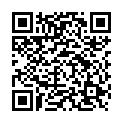|
|
|
| Module code: MAM_19_PE_3.06.IEE |
|
|
3V+2PA+1S (6 hours per week) |
|
7 |
| Semester: 3 |
| Mandatory course: yes |
Language of instruction:
German |
Assessment:
P241-0052 - paper on industrial design - Project in combination mit ergonomics (30%)
P241-0053 - written exam on ergonomics - (40%)
P241-0054 - Seminar on ethics - lecture/class presentation (30%)
[updated 02.12.2025]
|
MAM_19_PE_3.06.IEE (P241-0052, P241-0053, P241-0054) Engineering and Management, Master, ASPO 01.10.2019
, semester 3, mandatory course, Specialization Product Development
MAM_24_PE_3.06.IEE Engineering and Management, Master, SO 01.10.2024
, semester 3, mandatory course, Specialization Product Development
|
90 class hours (= 67.5 clock hours) over a 15-week period.
The total student study time is 210 hours (equivalent to 7 ECTS credits).
There are therefore 142.5 hours available for class preparation and follow-up work and exam preparation.
|
Recommended prerequisites (modules):
None.
|
Recommended as prerequisite for:
|
Module coordinator:
Prof. Dr. Bernd Heidemann |
Lecturer:
Prof. Dr. Bernd Heidemann
N.N.
Daniel Kelkel, M.Sc.
[updated 21.10.2025]
|
Learning outcomes:
Industrial design:
After successfully completing this part of the module, students will be familiar with basic terms and design strategies of industrial design and apply these when developing technical products. Students will be able to design a product based on design features from an analysis.
Ergonomics:
After successfully completing this part of the module, students will be able to include ergonomics as a factor in the development and design of products in order to increase their usability, user friendliness and safety.
They will be able to design human-machine systems and their environment in such a way that the variability of humans is taken into account with regard to their physiological and anthropometric characteristics, as well as their cognitive characteristics.
Ethics in engineering:
After successfully completing this part of the module, students will be familiar with basic concepts of ethics and can apply them to engineering sciences.
Students will be able to identify ethical conflicts, distinguish between legal and ethical perspectives and assess options for action with the help of ethical concepts.
Student will be able to take a position on ethical conflicts, argue accordingly and act responsibly.
[updated 02.12.2025]
|
Module content:
Industrial design:
The terms design and industrial design
Design history and eras
Design elements and strategies
Sustainable design
Ergonomics:
1. Introduction - history, terms, fields of application, man-machine-environment system
2. 2. The human in focus - physiology, anthropometry, psychology
3. 3. How ergonomics sees the human being - manifestations of human work, load/stress concept
4. The services that humans can provide - the ability to perform, the willingness to perform
5. 5. Introduction to the design of human-machine systems - design levels, objectives
6. Anthropometric and biomechanical aspects - basics, body measurements, body position
7. Physiological design - basics, design examples, posture, standing, sitting
8. Psychological design - basics, design examples
9. 9.2 Information technology design - human system element, design of displays and control elements
10. Software ergonomics - advantages, design principles
11. Designing environmental influences - light. color, climate, noise
Ethics in engineering:
Concepts of applied ethics in the engineering sciences: Distinction moral-ethics, moral concepts, moral values and principles, the principle of responsibility
Ethical dimensions of engineering activities
Technology assessment, environmental ethics
Professional responsibility: questions and guidelines
Ethical concepts - ethics concepts
Current and historic case studies
[updated 29.08.2025]
|
Teaching methods/Media:
Industrial design: Lecture mit Project
Ergonomics: Lecture with project in combination with industrial design
Ethics: Lecture and seminar with interactive presentation/report
[updated 29.08.2025]
|
Recommended or required reading:
Industrial design:
Heufler, G.: Design Basics - Von der Idee zum Produkt. Verlag Niggli
Habermann, H.: Kompendium des Industrie-Design: Von der Idee zum Produkt - Grundlagen der Gestaltung. Springer-Verlag.
Godau, M.: Produktdesign: Eine Einführung mit Beispielen aus der Praxis. Verlag Birkhäuser
Ergonomics:
Bullinger: Ergonomie
Laurig: Grundzüge der Ergonomie
Schmidtke: Ergonomie
Zühlke: Menschengerechte Bedienung technischer Geräte
Ethics:
Michael Quante: Einführung in die Allgemeine Ethik. Verlag wbg Academic.
Armin Grunwald, Stephan Saupe (Hrsg.): Ethik in der Technikgestaltung - Reflexionen zum Verhältnis von Ethik und Praxis. Verlag Springer.
Lutz Hieber, Hans-Ullrich Kammeyer: Verantwortung von Ingenieurinnen und Ingenieuren. Springer-Verlag.
Volker Pfeifer: Ethisch argumentieren - Eine Anleitung anhand von aktuellen Fallanalysen. Verlag Schöningh.
Günter Ropohl: Ethik und Technikbewertung. Verlag Suhrkamp.
[updated 04.11.2020]
|


